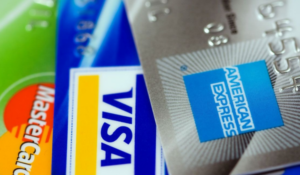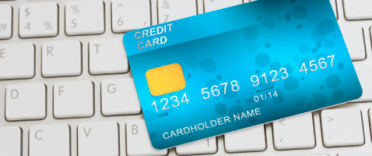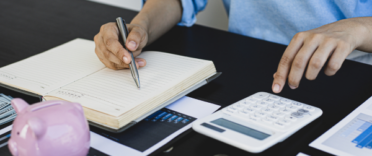 Stoozing is a technique that enables you to earn free money by taking advantage of 0% credit card offers. You do this by borrowing money via a 0% purchase credit card and then placing it in a savings account to earn interest. In this article we explain what stoozing is, how it works and how you can use it to make free money from credit card companies.
Stoozing is a technique that enables you to earn free money by taking advantage of 0% credit card offers. You do this by borrowing money via a 0% purchase credit card and then placing it in a savings account to earn interest. In this article we explain what stoozing is, how it works and how you can use it to make free money from credit card companies.
What is stoozing?
Stoozing is a way of taking advantage of interest-free borrowing to earn extra interest. You use a 0% credit card to cover as many of your usual purchases as possible, building up a balance on the card and saving up money you would normally have spent directly through your current account. These savings go into a savings account at the highest rate possible. Before the interest-free period expires, you pay off your debt from the savings and keep the extra interest you have accumulated. You can watch the video below to see Damien explain the best way to use the stoozing system.
How does stoozing work?
This is how stoozing works:
1 - Take out a new 0% purchase credit card
If you've got a good credit rating, you take out a 0% purchase credit card which means everything you buy on that card for an agreed period of time, doesn't attract any interest. Make sure that you diarise the date when the 0% purchase offer ends. Read our round-up of the best 0% purchase credit cards.
2 - Change how you pay for everyday items
Rather than paying for everyday items using the money in your current account (i.e from your wages) instead use your new 0% purchase credit card for all your everyday spending. It is then important to make sure that you do not spend the money building up in your current account and it's also important to never withdraw cash on your credit card. Withdrawing cash on a credit card not only impacts your credit score but will also incur interest from your credit card company.
3 - Pay the minimum amount off the credit card each month
The next step is to pay the minimum monthly repayment allowed on your 0% purchase credit card via direct debit from your current account each month.
4 - Move any spare money from your current account into a savings account
Periodically (at least once a month) move any unspent money from your current account, that you would normally have used for your everyday spending, into a savings account paying the highest rate of interest possible. In this way the money building up in your savings account should match the balance that is building up on your 0% purchase credit card. Read our article on the best savings accounts in the UK to find the most suitable accounts paying the highest rate of interest. It is important to ensure that you are able to access to your money when your 0% purchase credit card offer period ends.
5 - Clear the credit card balance when the 0% purchase period ends
When the deal period on your 0% purchase credit card comes to an end, clear the balance using the money that has accrued in your savings account.
6 - Keep the savings account interest
After clearing the credit card balance completely you will be left with the interest you earned on the money borrowed from the credit card company.
Which credit card is best for you?
Comparing different credit cards is a key part of getting the best deal for you. Money to the Masses has helped to simplify this process by partnering with Creditec*, an online comparison service. You do not need to trawl through countless different provider websites hunting for the best cashback or lowest fees, as Creditec’s personalised search results will show you the key details you need to know in one place. Your tailored list will also feature the cards that you are more likely to be accepted for, cutting down the chance of any applications you make being rejected. Your search results are built using a soft credit search, so there will be no damage to your credit score. You can start your search by clicking this link*.
How to boost the money you make from stoozing
It is possible to further boost the money that you make from stoozing. The method is the same as above but instead of clearing the debt on the credit card at the end of the 0% purchase period you instead take out a new 0% balance transfer credit card, that doesn’t charge a fee for transferring balances, and transfer the 0% purchase credit card balance onto the new balance transfer credit card. You then leave the money in your savings account to continue to earn interest for even longer.
At the end of the 0% balance transfer period you then clear the balance transfer credit card using the money in your savings account, keeping the interest as profit.
Pros and cons of stoozing
Here are the main advantages and disadvantages of stoozing:
Pros of stoozing
- You can make free money in a legitimate and legal way.
Cons of stoozing
- Taking out lots of credit cards in a short space of time and having high credit card balances can have a negative impact on your credit report and your credit score which could hamper your ability to borrow money in the future for legitimate reasons. That is why it is inadvisable to try stoozing if you plan to apply for a mortgage in the near future.
- If you apply for a 0% balance transfer credit card that doesn’t charge a transfer fee, in an attempt to boost the money you make from stoozing, you aren’t guaranteed to be accepted. Instead, it is possible that the credit card company may only offer you a balance transfer card where a fee is applied, which is typically around 2%-3% of the balance, because of your personal circumstances.
- If you have lock your savings away in a fixed rate savings account, you could end up in a situation where you might have to try and get your money back early from the savings account provider to clear the debt that you have on the 0% purchase credit credit card. You are unlikely to be able to do that, at least without incurring some kind of financial penalty.
Obviously you don’t have to use a fixed term savings account (where you lock your money away to get more interest) because you can now get a decent level of interest on some easy access savings accounts and some high interest current accounts.
Stoozing alternative - use a cashback credit card instead
If you want to use credit cards to make free money then most people would probably be better off just using a cashback credit card for everyday spending that pays you money as you spend on it. However, it is important that you clear the balance on the credit card at the end of each month. Read our regularly updated round-up of the best cashback credit cards.
How much money can you make from stoozing?
The amount of money you make from stoozing or using a cashback credit cards depends on a number of factors including the cashback rate, the credit limits on each card, the amount of money you spend each month as well as the rate of interest you earn on money put in a savings account.
Stoozing vs cashback credit card
The chart below summaries whether stoozing or using a cashback credit would make more money based upon a savings account paying 4% interest, a 0% purchase credit card offering 25 months interest free and a cashback credit card offering 0.5% cashback on the first £10,000 spent a year and then 1% thereafter. Neither credit card has an annual fee.
Where a number is coloured green that means that using a cashback credit card gives the highest reward. Where a number is coloured red that means that stoozing gives the highest reward. As you can see stoozing only really works successfully if you secure a credit card limit of £5,000 or more on the 0% purchase credit card you are offered.
| Monthly spending when stoozing or using cashback credit card | |||||||||
| 0% Purchase credit card limit | £500 per month | £1,000 per month | £1,500 per month | £2,000 per month | £2,500 per month | £3,000 per month | £3,500 per month | £4,000 per month | £5,000 per month |
| £500 | £63 | £145 | £268 | £390 | £513 | £635 | £758 | £880 | £1,125 |
| £1,000 | £85 | £145 | £268 | £390 | £513 | £635 | £758 | £880 | £1,125 |
| £1,500 | £125 | £145 | £268 | £390 | £513 | £635 | £758 | £880 | £1,125 |
| £2,000 | £163 | £170 | £268 | £390 | £513 | £635 | £758 | £880 | £1,125 |
| £3,000 | £233 | £249 | £268 | £390 | £513 | £635 | £758 | £880 | £1,125 |
| £4,000 | £297 | £325 | £334 | £390 | £513 | £635 | £758 | £880 | £1,125 |
| £5,000 | £353 | £398 | £412 | £419 | £513 | £635 | £758 | £880 | £1,125 |
| £6,000 | £403 | £467 | £488 | £499 | £513 | £635 | £758 | £880 | £1,125 |
| £7,000 | £445 | £532 | £560 | £575 | £584 | £635 | £758 | £880 | £1,125 |
| £8,000 | £481 | £594 | £631 | £651 | £662 | £669 | £758 | £880 | £1,125 |
| £9,000 | £509 | £652 | £700 | £723 | £738 | £748 | £758 | £880 | £1,125 |
| £10,000 | £531 | £706 | £765 | £796 | £813 | £824 | £833 | £880 | £1,125 |
Resources
- Best 0% purchase credit cards
- Best 0% balance transfer credit cards
- Best cashback credit cards
- Best fixed term savings accounts
If a link has an * beside it this means that it is an affiliated link. If you go via the link Money to the Masses may receive a small fee which helps keep Money to the Masses free to use. But as you can clearly see this has in no way influenced this independent and balanced review of the product.







